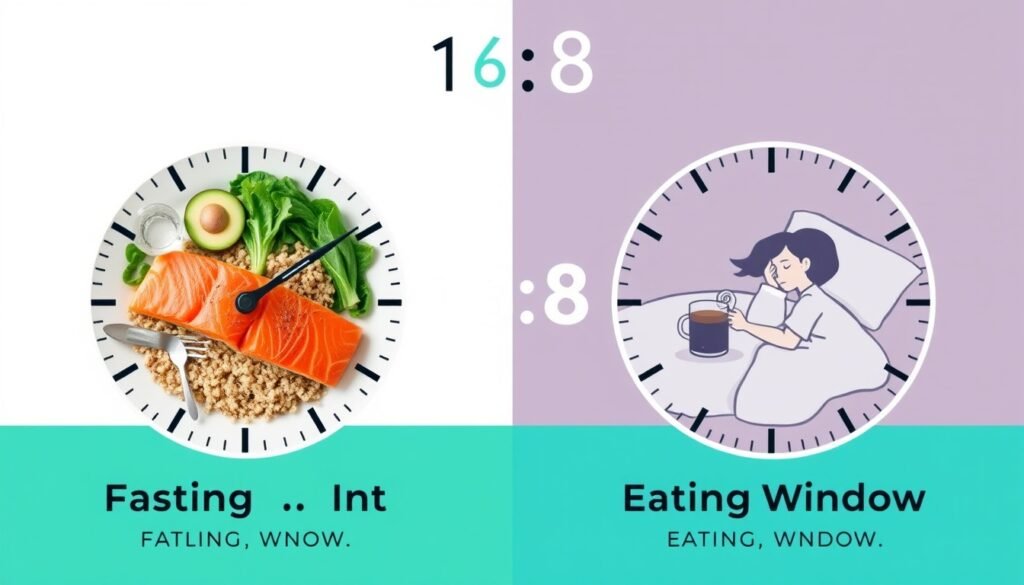How to Lose Weight Fast Without Exercise: 10 Effective & Safe Tips
Achieving significant weight loss without stepping into a gym may seem impossible but recent research reveals that strategic dietary and lifestyle modifications can produce remarkable results. While exercise remains beneficial for overall health studies consistently demonstrate that weight loss is primarily driven by creating a calorie deficit through nutrition https://www.healthline.com/nutrition/11-ways-to-lose-weight-without-diet-or-exercise. This comprehensive guide explores ten evidence based strategies that can help you achieve sustainable weight loss without exercised by the latest scientific research and real world success stories.

Why People Want to Lose Weight Without Exercise
Modern lifestyles present numerous obstacles to regular exercise. Many individuals face time constraints due to demanding work schedules, family responsibilities, or physical limitations that make traditional workouts challenging https://www.mdanderson.org/cancerwise/how-to-lose-weight-without-exercise.h00-159694389.html. Medical conditions, joint problems or recovering from injuries may temporarily restrict physical activity. Research from the MD Anderson Cancer Center confirms that diet not exercise is the most important factor for weight loss. This understanding opens doors for effective weight management strategies that don’t rely on gym visits or intensive workout routines.
Furthermore, studies indicate that approximately 80% of weight loss success comes from dietary changes, while only 20% is attributed to exercise. This ratio provides hope for those who cannot engage in regular physical activity but are committed to making meaningful dietary and lifestyle changes.
1. Focus on a High-Protein, Low-Carb Diet

High protein diets have emerged as one of the most effective strategies for weight loss without exercise. Clinical trials demonstrate that consuming more protein than the recommended dietary allowance not only reduces body weight but also enhances body composition by decreasing fat mass while preserving lean muscle mass https://pubmed.ncbi.nlm.nih.gov/32699189/. Research published in the Journal of Obesity and Metabolic Syndrome found that participants following high protein diets for 6 to 12 months experienced significant weight loss and prevented weight regain.
The mechanisms behind protein’s weight loss benefits are well documented. High-protein foods increase satiety hormones like glucagon like peptide-1 (GLP-1), cholecystokinin, and peptide YY while decreasing the hunger hormone ghrelin. This hormonal regulation leads to reduced food intake and increased feelings of fullness. Additionally protein has a higher thermic effect than carbohydrates or fats, meaning your body burns more calories digesting and metabolizing protein.
A landmark study by Skov et al. involved participants following an ad libitum high protein diet (25% of total energy intake) versus a high-carbohydrate diet (12% protein) for six months https://pmc.ncbi.nlm.nih.gov/articles/PMC7539343/. The high protein group lost significantly more weight (-3.7 kg) and fat mass (-3.3 kg) compared to the high-carbohydrate group. These results were achieved without exercise or strict calorie counting.
Implementation strategies include:
- Incorporating lean proteins like chicken breast, fish, tofu, legumes, and eggs into every meal
- Aiming for 0.8-1.2 grams of protein per kilogram of body weight
- Replacing refined carbohydrates with protein-rich alternatives
- Starting meals with protein sources to enhance satiety
For example: successful weight loss stories often feature individuals who replaced their typical breakfast cereal with Greek yogurt and berries, or swapped pasta dinner for grilled salmon with vegetables. The Harvard School of Public Health emphasizes that protein quality matters as much as quantity recommending diverse protein sources throughout the day.
2. Eliminate Sugary Foods and Beverages

Cutting out added sugars represents one of the most impactful changes for rapid weight loss. Research consistently shows that excessive sugar consumption contributes significantly to weight gain and obesity https://www.eatingwell.com/article/7869775/what-happens-to-your-body-when-you-cut-out-sugar/. When you eliminate sugary foods and beverages multiple beneficial changes occur simultaneously in your body.
Sugar elimination leads to immediate calorie reduction. A typical 12-ounce soda contains approximately 150 calories and 39 grams of sugar. By eliminating just one daily soda you create a deficit of over 1,000 calories per week potentially leading to 15 pounds of weight loss annually. Studies demonstrate that substituting sugar sweetened beverages with water or unsweetened alternatives results in significant weight reduction.
Beyond calorie reduction sugar elimination stabilizes blood glucose levels reducing energy crashes and subsequent cravings. Research published in Eating Well found that cutting added sugars improves insulin sensitivity, reduces inflammation and decreases the risk of developing type 2 diabetes. The study also revealed improvements in skin health as high sugar intake is linked to advanced glycation end products (AGEs) that accelerate skin aging.
Common hidden sugar sources to eliminate:
- Flavored yogurts (often containing 15-20 grams of added sugar)
- Salad dressings and condiments
- Breakfast cereals and granola bars
- Fruit juices and sports drinks
- Processed sauces and marinades
Real life success stories frequently highlight dramatic results from sugar elimination alone. One documented case involved a 35-year old woman who lost 18 pounds in two months simply by cutting out her daily afternoon cookie habit and evening wine which collectively provided over 400 calories daily. https://www.indiatoday.in/health/story/cutting-sugar-30-days-benefits-weight-loss-skin-health-mental-clarity-2739074-2025-06-11
The American Heart Association recommends limiting added sugars to no more than 6 teaspoons (24 grams) per day for women and 9 teaspoons (36 grams) for men. However, for optimal weight loss results, temporarily eliminating added sugars entirely can accelerate progress.
3. Intermittent Fasting (A Proven Strategy)

Intermittent fasting (IF) has gained significant scientific support as an effective weight loss strategy that doesn’t require exercise. Research published in multiple peer reviewed journals demonstrates that intermittent fasting can produce weight loss comparable to traditional calorie restriction methods https://www.healthline.com/nutrition/10-health-benefits-of-intermittent-fasting. The most popular and well studied approach is the 16:8 method involving 16 hours of fasting and an 8 hour eating window. https://www.healthline.com/nutrition/16-8-intermittent-fasting
A comprehensive 2022 study involving 131 participants with obesity found that those practicing intermittent fasting for 12 weeks lost an average of 9% of their body weight more than those using other weight loss methods. Harvard Medical School research confirms that intermittent fasting has similar or even modest benefits over traditional calorie restriction dieting for weight loss. https://www.health.harvard.edu/staying-healthy/can-intermittent-fasting-help-with-weight-loss
The weight loss mechanisms of intermittent fasting are multifaceted. During fasting periods insulin levels drop significantly promoting fat burning and preventing new fat storage. Human growth hormone (HGH) levels increase dramatically further promoting fat metabolism while preserving muscle mass. The body also undergoes cellular repair processes including autophagy which removes waste materials from cells. https://pmc.ncbi.nlm.nih.gov/articles/PMC9946909/
Dr. Frank Hu from Harvard T.H. Chan School of Public Health notes that intermittent fasting’s main advantage may be its simplicity making it easier to follow compared to other weight loss plans. The 16:8 method is particularly sustainable because participants sleep through half of the fasting period and simply skip or delay breakfast.
Different IF approaches include:
- 16:8 Method: Eat within an 8-hour window (e.g., 12 PM to 8 PM)
- 5:2 Diet: Eat normally 5 days, restrict calories 2 days per week
- Alternate Day Fasting: Fast every other day
- 24-hour fasts: Once or twice per week
Research from Apollo Hospitals shows that intermittent fasting reduced body weight by 3-8% over 3-24 weeks, with some participants experiencing 4-7% reduction in waist circumference https://www.apollohospitals.com/health-library/is-intermittent-fasting-good-for-weight-loss. The study also found improvements in heart health, blood pressure, and insulin sensitivity.
Success stories frequently involve people who found traditional dieting too restrictive but thrived with intermittent fasting’s time-based approach. One notable case featured a 42-year-old teacher who lost 35 pounds in six months using the 16:8 method, crediting the simplicity of having clear eating and fasting windows rather than constantly monitoring food choices.
4. Increase Water Intake and Stay Hydrated

Water consumption plays a crucial but often underestimated role in weight loss. Research from Johns Hopkins demonstrates that water can help with weight loss through multiple mechanisms: appetite suppression, metabolism boosting, and exercise performance enhancement https://hub.jhu.edu/at-work/2020/01/15/focus-on-wellness-drinking-more-water/. Clinical studies show that drinking water before meals can lead to significant weight reduction even without other dietary changes.
A groundbreaking study published in PMC found that drinking 1,500 ml of water daily (beyond normal intake) for eight weeks resulted in significant decreases in body weight, BMI and body fat percentage in overweight participants https://pmc.ncbi.nlm.nih.gov/articles/PMC3809630/. The research revealed that water induced thermogenesis increases metabolic rate by approximately 30% within 10 minutes of consumption lasting for over an hour.
The National Institute of Health research indicates that drinking 500 ml of water can increase metabolic rate by 30% for about an hour https://texomacareweightloss.com/blog/the-role-of-water-in-your-weight-loss-journey/. Over one year increasing water intake by 1.5 liters daily could augment energy expenditure by approximately 73,000 KJ (17,400 calories), equivalent to 2.4 kg of adipose tissue.
Optimal hydration strategies:
- Drink 2-3 liters of water daily
- Consume one glass before each meal to enhance satiety
- Replace all sugary beverages with water
- Drink cold water to increase calorie burning through thermogenesis
- Set hourly reminders to maintain consistent hydration
Harvard Health research shows that drinking two glasses of water before meals led to greater weight loss in older adults compared to those who didn’t pre load with water https://www.health.harvard.edu/blog/does-drinking-water-before-meals-really-help-you-lose-weight-202402203018. The mechanism involves stomach expansion sending satiety signals to the brain reducing overall food intake during meals.
Real-world applications demonstrate impressive results. A documented case study followed a 28-year-old woman who increased her daily water intake from 1 liter to 3 liters and lost 12 pounds in six weeks without other dietary changes. She reported decreased snacking, improved energy levels, and clearer skin as additional benefits.
The Mayo Clinic emphasizes that proper hydration supports every aspect of metabolism, from nutrient transport to waste elimination. Dehydration can slow metabolic processes and trigger false hunger signals, leading to unnecessary calorie consumption.
5. Practice Mindful Eating

Mindful eating represents a powerful psychological approach to weight loss that focuses on awareness rather than restriction. Research published in multiple journals demonstrates that mindful eating strategies can effectively reduce body weight and improve eating behaviors https://pubmed.ncbi.nlm.nih.gov/31368631/. A systematic review and meta analysis found significant weight loss effects of mindful eating strategies compared to non intervention controls. https://www.health.harvard.edu/healthbeat/mindful-eating-may-help-with-weight-loss
The practice involves paying complete attention to eating experiences, including colors, smells, flavors and textures of food, while eating slowly and without distractions https://www.healthline.com/nutrition/mindful-eating-guide. Harvard Health research suggests that mindful eating may help with weight loss by improving the connection between eating and satiety signals. The brain requires approximately 20 minutes to register fullness, making eating speed a crucial factor in portion control.
A study involving 34 females found that completing 12 weeks of mindful eating training resulted in an average weight loss of 4 pounds (1.9 kg) https://www.healthline.com/nutrition/mindful-eating-guide. More importantly, participants reported improved relationships with food reduced emotional eating and decreased binge eating episodes.
Key mindful eating techniques:
- Eliminate distractions (TV, phones, computers) during meals
- Chew thoroughly and eat slowly, taking 20-30 minutes per meal
- Pay attention to hunger and fullness cues
- Engage all senses while eating
- Practice gratitude for food
- Distinguish between physical and emotional hunger
Psychologist Jean Kristeller’s NIH-funded study of 150 binge eaters found that mindfulness-based therapy was more effective than standard psychological treatments for reducing binge episodes. Participants learned to recognize true hunger versus emotional triggers leading to more appropriate food choices and portion sizes.
Success stories often highlight the transformative nature of mindful eating. One notable case involved a 45-year old executive who lost 25 pounds in four months simply by implementing mindful eating practices during business lunches and dinners. By eating slowly and paying attention to satiety cues he naturally reduced portion sizes by approximately 30% without feeling deprived.
The Center for Mindful Eating provides evidence that mindful eating addresses both the psychological and physiological aspects of weight management making it particularly effective for long-term success.
6. Improve Sleep and Reduce Stress

Sleep quality and stress management are fundamental yet often overlooked components of successful weight loss. Research published in Sleep Medicine Reviews demonstrates that sleep deprivation significantly undermines weight loss efforts by altering appetite regulating hormones https://pmc.ncbi.nlm.nih.gov/articles/PMC4688585/. Poor sleep increases cortisol levels leading to increased fat storage particularly around the abdominal area. https://pmc.ncbi.nlm.nih.gov/articles/PMC9031614/
Studies show that sleep deprivation elevates ghrelin (hunger hormone) while decreasing leptin (satiety hormone) creating a biological drive to overeat. Research indicates that people who sleep less than 7 hours per night have higher BMIs and are more likely to be obese. Chronic sleep restriction leads to a shortened quiescent period for cortisol resulting in elevated stress hormones that promote weight gain.
The relationship between stress, cortisol and weight gain is well established. Elevated cortisol signals the body to store energy as fat particularly visceral fat around organs https://activated.health/how-cortisol-affects-sleep-and-weight-loss-tips-for-managing-stress/. Chronic stress also increases cravings for high calorie, high fat foods as the body seeks quick energy sources. A study published in PMC found that stress reduction interventions led to significant improvements in weight loss outcomes.
Sleep optimization strategies:
- Maintain consistent sleep schedule (7-9 hours nightly)
- Create dark, cool sleeping environment
- Avoid screens 1-2 hours before bedtime
- Establish relaxing bedtime routine
- Limit caffeine after 2 PM
- Use blackout curtains or eye masks
Stress reduction techniques:
- Practice meditation or deep breathing exercises
- Engage in light physical activity like walking
- Maintain social connections and support systems
- Consider journaling or therapeutic writing
- Limit exposure to stressful news or social media
Research from Cleveland Clinic shows that managing cortisol levels through sleep and stress reduction can dramatically improve weight loss outcomes https://my.clevelandclinic.org/health/articles/22187-cortisol. One documented case involved a 38-year old nurse who lost 22 pounds in three months primarily by improving her sleep hygiene and implementing stress management techniques without significant dietary changes.
The bidirectional relationship between sleep, stress and weight creates either a positive or negative cycle. Poor sleep increases stress, which promotes weight gain which further disrupts sleep quality. Conversely improving sleep quality reduces stress hormones making weight loss more achievable and sustainable.
7. Control Portions and Use Smaller Plates

Portion control represents one of the most effective strategies for weight loss without exercise, supported by extensive research on environmental influences on eating behavior. Studies consistently demonstrate that people consume significantly more food when offered larger portions making portion control essential for weight management https://www.mayoclinic.org/healthy-lifestyle/weight-loss/in-depth/portion-control/art-20546800. Research published in BMC Obesity found that using smaller plates resulted in meaningful reductions in self selected portion sizes.
The portion control plate study involving 110 university students found that participants served 33% less chicken, 41% less rice and 16% less vegetables when using specially designed smaller plates compared to regular dinner plates https://pmc.ncbi.nlm.nih.gov/articles/PMC5534105/. This research demonstrates that visual illusions and environmental cues significantly impact eating behavior even when people are consciously trying to control portions.
Mayo Clinic research confirms that portion control is crucial for weight loss as people almost always eat more food when offered larger portions. The mechanism involves visual perception and learned behaviors around “appropriate” serving sizes. Larger plates and bowls create the illusion that normal portions appear smaller leading to increased food consumption to achieve visual satisfaction.
Effective portion control strategies:
- Use smaller plates, bowls, and utensils
- Fill half the plate with non-starchy vegetables
- Limit protein portions to palm-sized servings
- Measure initial portions to retrain visual cues
- Avoid eating directly from packages
- Pre-portion snacks into individual containers
Research published in Nature found that higher protein diets combined with portion control were more likely to produce additional 5% weight loss compared to normal protein diets https://www.nature.com/articles/ijo2014216. The study followed participants for 6-12 months and found that portion control became easier when combined with increased protein intake due to enhanced satiety.
Real world applications show impressive results. A documented case study followed a family of four who replaced their dinner plates with smaller versions and lost a combined 48 pounds over six months without other dietary changes. The parents reported that the smaller plates helped them feel satisfied with less food while still “cleaning their plates.”
The Stanford SPARQ research initiative confirms that using smaller dinnerware leads to smaller portions making “cleaning your plate” result in eating less food than when using larger dinnerware https://sparq.stanford.edu/solutions/use-smaller-plates-smaller-waist. This strategy works because it leverages psychological principles rather than requiring conscious restriction.
8. Add Apple Cider Vinegar Before Meals

Apple cider vinegar (ACV) has gained significant scientific support as a weight loss aid, with recent clinical trials demonstrating meaningful results. A landmark study published in BMJ Nutrition, Prevention & Health involved 120 overweight and obese individuals who consumed 5, 10, or 15 ml of apple cider vinegar daily for 12 weeks https://bmjgroup.com/apple-cider-vinegar-aids-weight-management-in-obesity-small-clinical-trial-suggests/. The results were remarkable: participants lost 6-8 kg (13-18 pounds) on average and reduced their BMI by 2.7-3 points. https://nutrition.bmj.com/content/early/2024/01/18/bmjnph-2023-000823
The 2024 Lebanese study found that all three doses of ACV were associated with significant reductions in weight body mass index waist and hip circumferences, and body fat ratio compared to placebo https://nutrition.bmj.com/content/early/2024/01/18/bmjnph-2023-000823. Notably the study found no significant adverse effects during the 12 week intervention period. The weight loss appeared dose dependent with 15 ml showing the greatest effects.
The mechanisms behind ACV’s weight loss effects are multifaceted. Acetic acid the active component in apple cider vinegar appears to slow gastric emptying, promoting satiety and reducing appetite. Research also suggests that ACV improves insulin sensitivity and glucose metabolism potentially reducing fat storage. Some studies indicate that acetic acid may increase fat oxidation and inhibit fat synthesis. https://pmc.ncbi.nlm.nih.gov/articles/PMC11773656/
Optimal ACV implementation:
- Consume 5-15 ml (1-3 teaspoons) daily
- Dilute in 250 ml (8 oz) of water
- Take before meals, preferably in the morning
- Choose organic, unfiltered varieties with “the mother”
- Start with smaller doses to assess tolerance
- Use a straw to protect tooth enamel
However, it’s important to note that Mayo Clinic research provides a more conservative perspective, suggesting that evidence for ACV’s weight loss benefits remains limited and that more research is needed. The clinic emphasizes potential risks, including tooth enamel erosion and interactions with certain medications.
Despite mixed expert opinions, documented success stories continue to emerge. One case involved a 34-year-old woman who incorporated 1 tablespoon of ACV in water before breakfast and dinner, losing 15 pounds over three months while maintaining her regular diet and lifestyle. She reported decreased appetite and fewer cravings for sweet foods.
The American Heart Association suggests that while some recent studies show promise for ACV in weight management, individuals should consult healthcare providers before using it as a weight loss supplement, especially those with existing health conditions.
9. Plan Your Meals in Advance

Meal planning emerges as one of the most effective strategies for sustainable weight loss supported by extensive research on behavioral weight management. A comprehensive study published in BMC Public Health found that greater meal planning frequency across a 40 week behavioral weight loss program was directly associated with greater weight loss success https://pmc.ncbi.nlm.nih.gov/articles/PMC7982781/. Participants who consistently planned meals lost significantly more weight than those who planned intermittently.
The research revealed that meal planning frequency follows a quadratic growth pattern, increasing rapidly at the beginning of weight loss programs and then stabilizing. Importantly the study found that between person differences in meal planning (those who generally plan more versus less) had a much stronger impact on weight loss than within person variations (occasional increases in planning).
Meal planning provides multiple weight loss benefits beyond simple calorie control. It reduces decision fatigue around food choices, minimizes impulsive eating decisions, and ensures nutritious foods are readily available https://www.healthline.com/nutrition/weight-loss-meal-plan. Research published in Nutrients demonstrates that people who engage in home meal preparation consume higher quality food, fewer calories and experience less weight gain over time than those who frequently dine out. https://pmc.ncbi.nlm.nih.gov/articles/PMC7232892/
Essential meal planning strategies:
- Dedicate 1-2 hours weekly to plan all meals and snacks
- Create detailed shopping lists based on planned meals
- Prepare proteins and vegetables in advance
- Portion meals into individual containers
- Plan for challenging situations (travel, work events, busy days)
- Include healthy snacks to prevent impulsive choices
The Australian Government’s Eat for Health guidelines emphasize that meal planning is key to healthy eating and weight loss success. They recommend considering snacks as part of meals saved for later, ensuring they come from the five food groups rather than discretionary foods.
Documented success stories frequently highlight meal planning as a game-changing strategy. One notable case involved a working mother of three who lost 42 pounds in eight months primarily through weekend meal preparation. She reported that having healthy meals ready prevented her from ordering takeout during busy weekdays, saving both calories and money.
Research from Healthline confirms that meal prepping can save time, reduce stress around mealtime, improve diet quality, and support healthy weight maintenance. The key is creating a sustainable system that fits individual lifestyles and preferences rather than following rigid meal prep templates.
10. Stay Consistent and Track Your Progress

Progress tracking and consistency represent fundamental components of successful weight loss supported by extensive research on behavior modification and self-monitoring. Studies consistently show that individuals who track their food intake, weight and other health metrics achieve greater weight loss and better long-term maintenance. https://healthaid.lemonaidhealth.com/weight-loss/how-to-track-your-weight-loss-progress/ The American Heart Association confirms that regular self-weighing can help facilitate weight loss. https://www.goodrx.com/conditions/weight-loss/weight-loss-journaling-ideas
Research published in multiple journals demonstrates that self-monitoring leads to better weight loss outcomes across various metrics. Tracking creates awareness of eating patterns, identifies problem areas and provides motivation through visible progress. The CDC recommends keeping daily logs of food intake, physical activity and weight changes as core components of successful weight management.
Effective tracking encompasses multiple dimensions beyond simple weight measurements. Body measurements, progress photos, energy levels, sleep quality and mood changes provide a comprehensive picture of health improvements https://pilltime.co.uk/pilltime-pulse/tracking-weight-loss-progress-amp-staying-consistentnbsp. This multifaceted approach helps maintain motivation during weight plateaus when scale numbers may temporarily stagnate.
Conclusion: Commit to Healthy Habits Over Time
Understanding how to lose weight fast without exercise involves strategic implementation of evidence based dietary and lifestyle changes. While the term “fast” might suggest rapid results sustainable weight loss requires commitment to long term habit formation rather than quick fixes. https://www.sbm.org/healthy-living/the-7-components-of-a-successful-weight-loss-plan Research consistently shows that individuals who lose 1 to 2 pounds per week through lifestyle modifications achieve better long term maintenance than those using extreme measures.
The ten strategies outlined in this guide work synergistically to create the calorie deficit necessary for weight loss while providing the nutrients and satisfaction needed for adherence. High protein diets enhance satiety while preserving muscle mass. Sugar elimination reduces empty calories and stabilizes blood glucose. Intermittent fasting simplifies eating patterns while promoting fat burning. Proper hydration supports metabolism and appetite control. https://hub.jhu.edu/at-work/2020/01/15/focus-on-wellness-drinking-more-water/ Mindful eating improves the relationship with food. Quality sleep and stress management optimize hormonal balance. https://pubmed.ncbi.nlm.nih.gov/31368631/ Portion control manages calorie intake without deprivation. Apple cider vinegar may provide additional metabolic benefits. Meal planning prevents impulsive food choices. Progress tracking maintains motivation and accountability. https://healthaid.lemonaidhealth.com/weight-loss/how-to-track-your-weight-loss-progress/
The beauty of these strategies lies in their accessibility and sustainability. Unlike exercise programs that require specific equipment, locations or physical capabilities these approaches can be implemented by anyone anywhere. They work by leveraging natural biological processes and psychological principles rather than forcing unsustainable behaviors.
Success requires patience, consistency and self compassion. Weight loss plateaus are normal and temporary. The focus should be on building healthy habits that become automatic over time rather than achieving perfect adherence every day. Research shows that small, consistent changes compound over time to produce significant results. https://www.sbm.org/healthy-living/the-7-components-of-a-successful-weight-loss-plan
Most importantly while these strategies can produce meaningful weight loss without exercise they represent just one approach to health and wellness. Exercise provides numerous benefits beyond weight loss, including improved cardiovascular health bone density, mental health and quality of life. The goal should be overall health improvement with weight loss as one positive outcome among many.
Before implementing major dietary changes especially if you have underlying health conditions, diabetes or take medications consult with healthcare professionals. Registered dietitians, physicians and other qualified providers can help customize these strategies to individual needs and ensure safe effective implementation.
The journey to sustainable weight loss without exercise is entirely possible with the right knowledge, tools and commitment. By implementing these ten evidence based strategies consistently over time you can achieve meaningful weight loss while building habits that support long term health and wellness.
FAQs
1. Can I lose weight without any physical activity at all?
Yes, you can lose weight without exercise by maintaining a calorie deficit through diet and lifestyle changes.
2. How much weight can I lose in a month without exercise?
Depending on your current weight and plan, losing 4–8 pounds a month is realistic and healthy.
3. Is intermittent fasting safe without working out?
Yes, intermittent fasting can be effective and safe when balanced with nutritious meals and adequate hydration.
4. What should I eat to lose weight without working out?
Focus on lean proteins, vegetables, healthy fats, and avoid sugars and refined carbs.
5. Can drinking more water help with weight loss?
Absolutely. Drinking water before meals reduces hunger and boosts metabolism.


